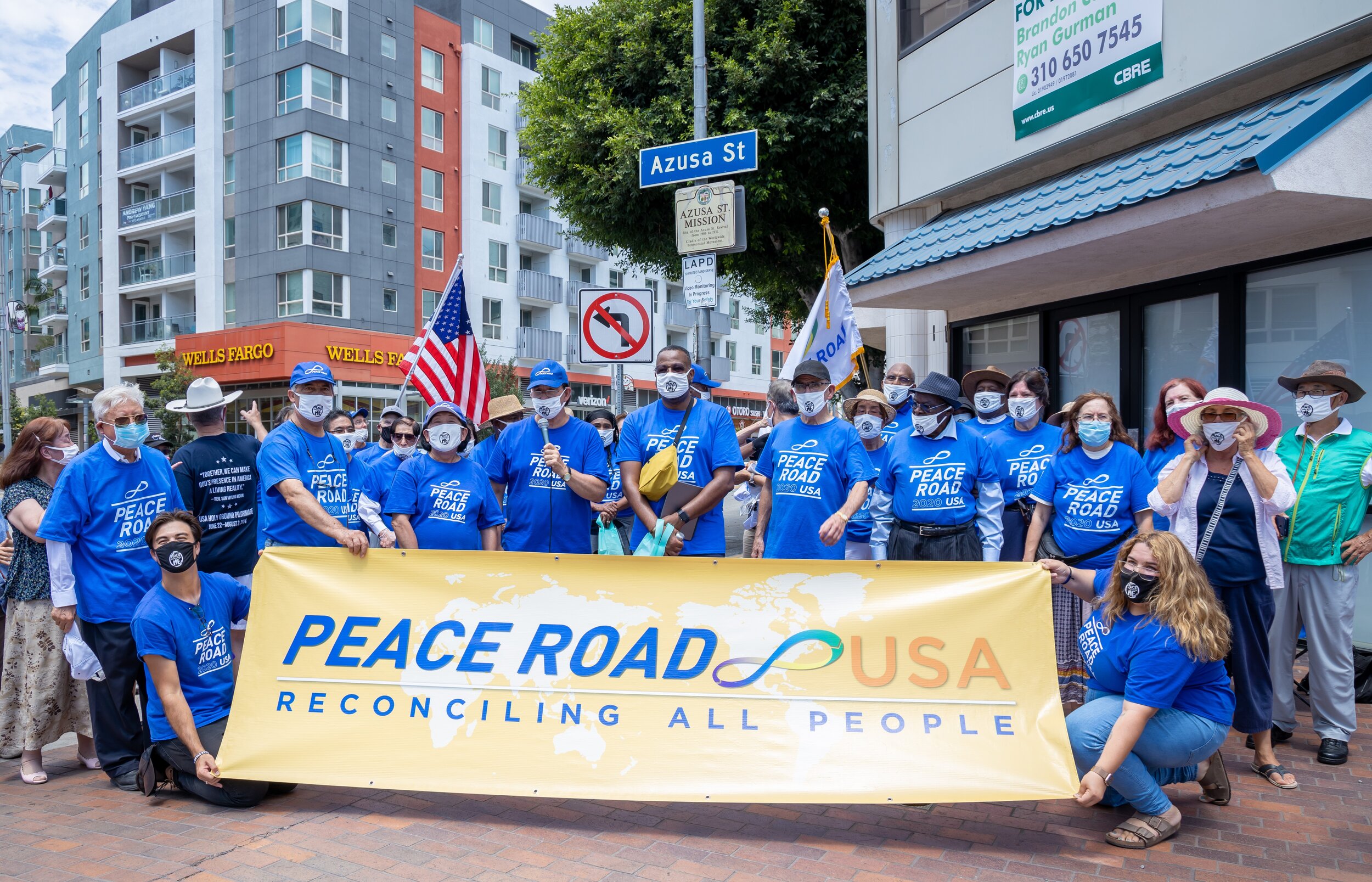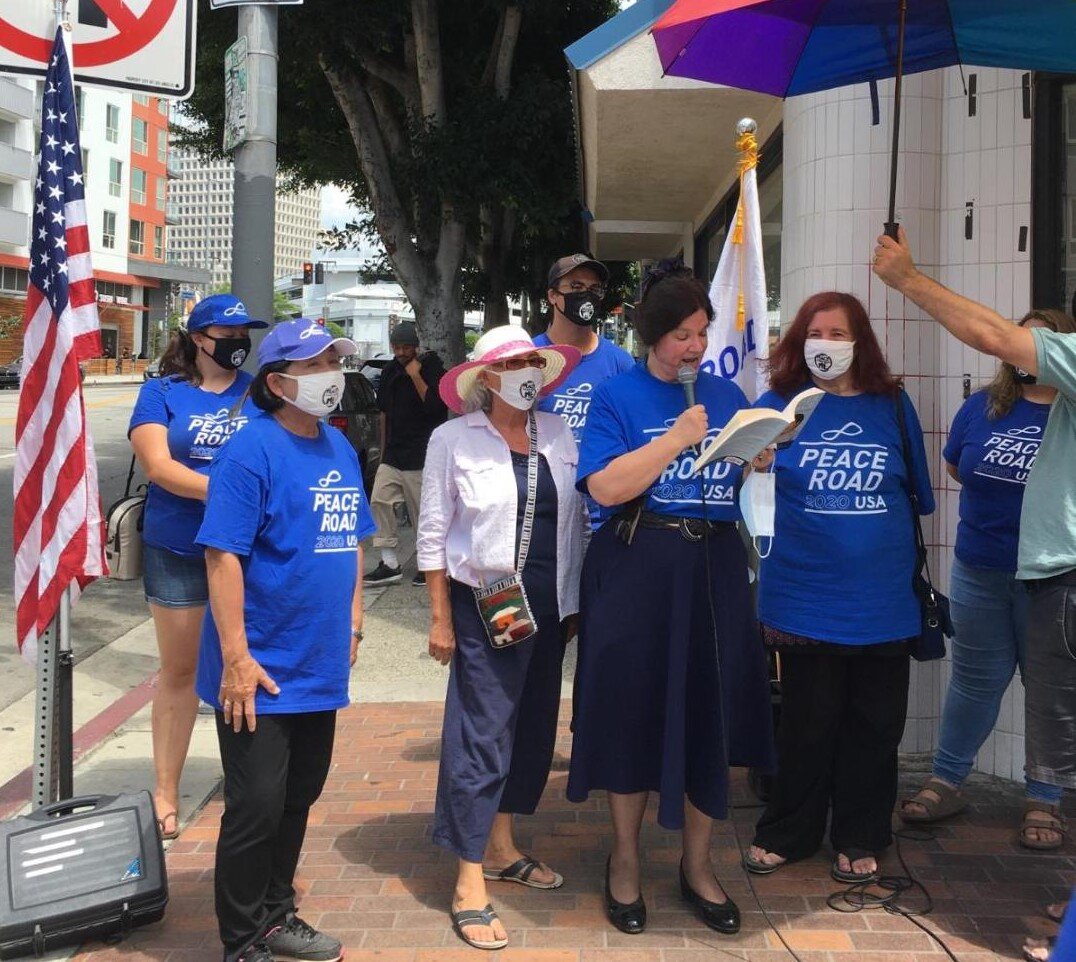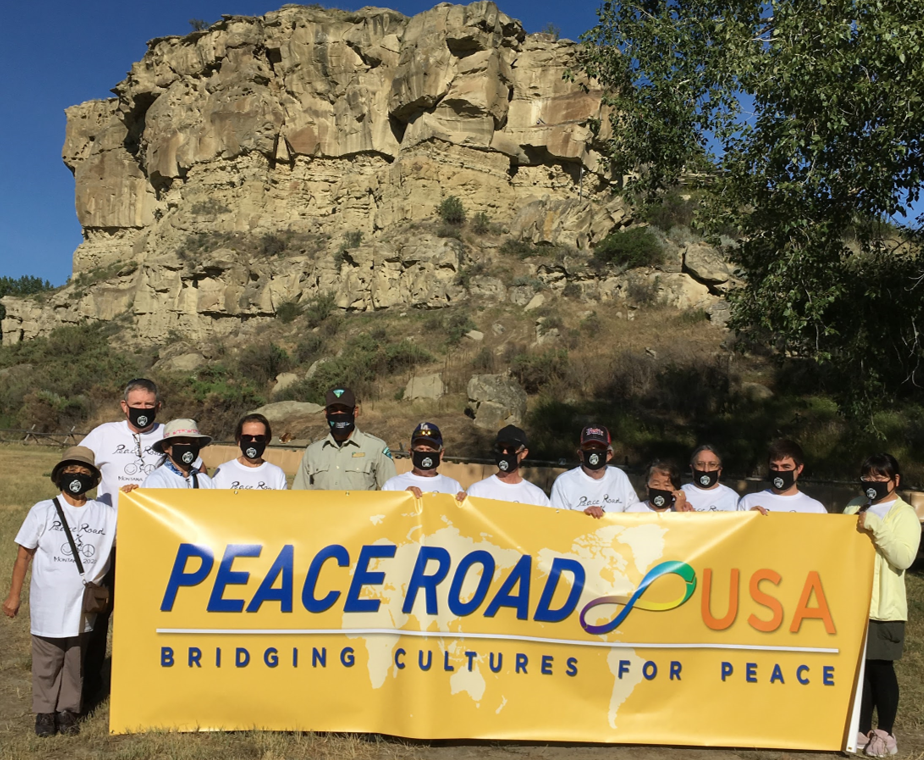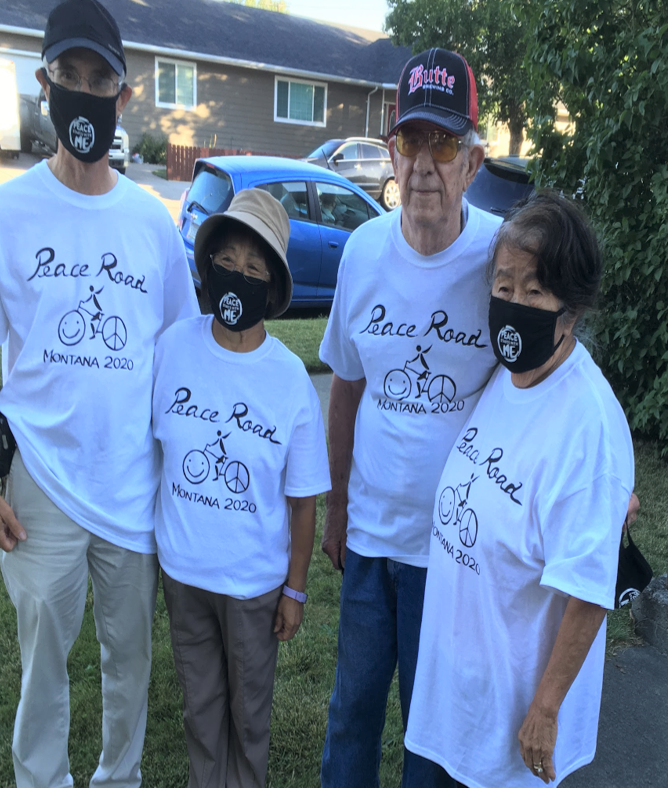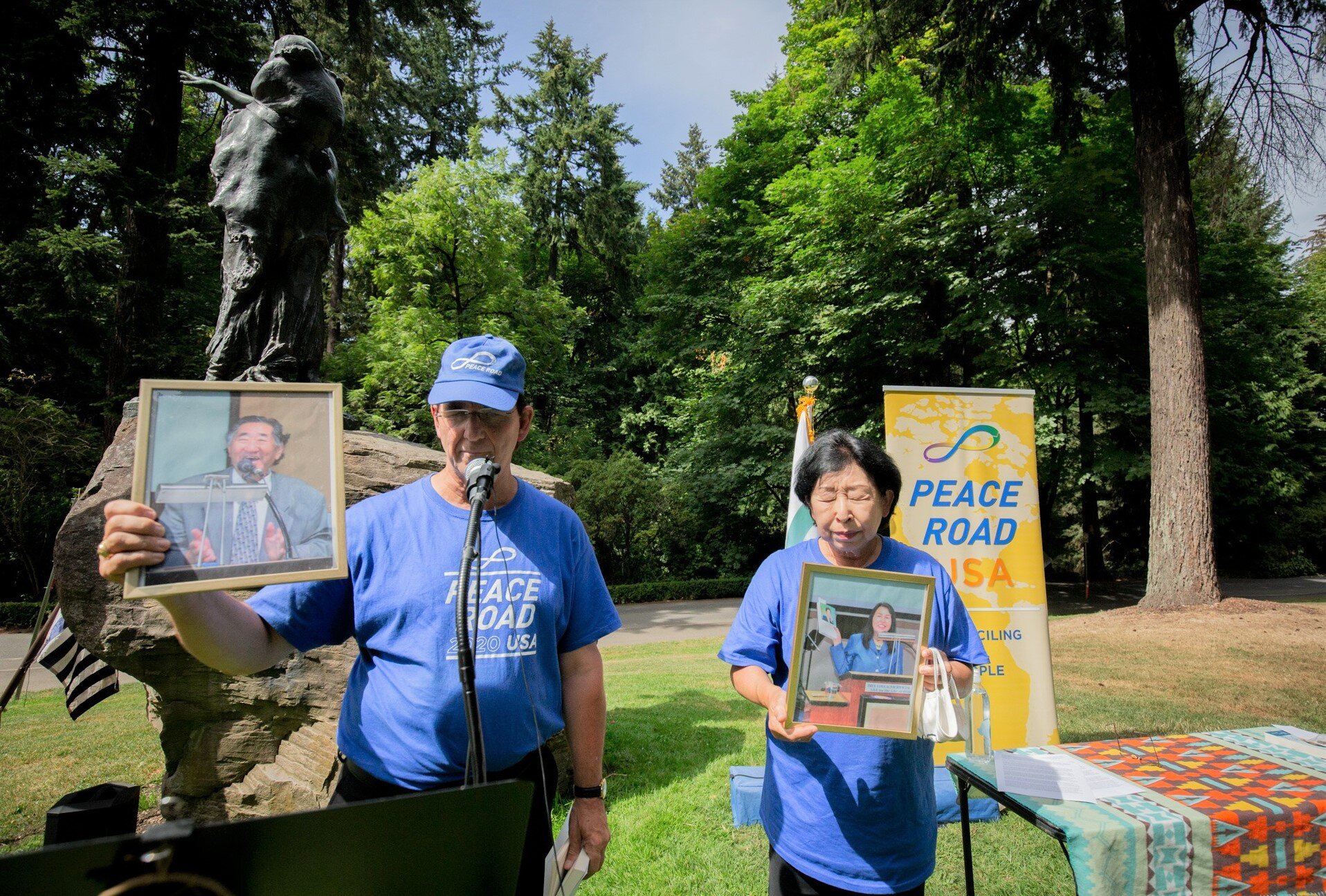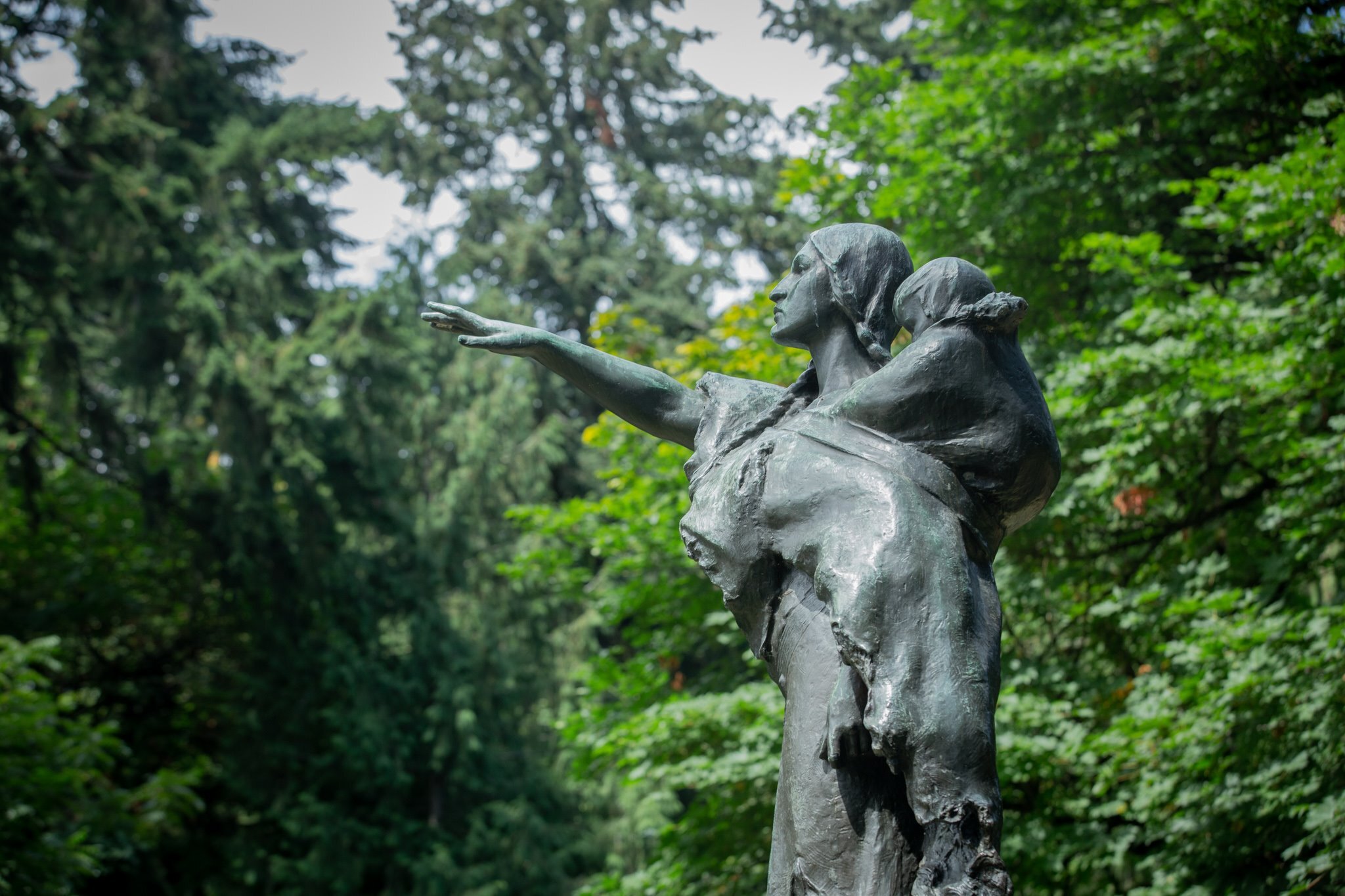Peace Road 2020: Repentance and Reconciliation in the West Coast Region
Hawaii
Editor’s Note: Around the time of the Peace Road events, much of the West Coast was also experiencing record-breaking heat waves, and in combination with severe August thunderstorms, this led to devastating wildfires in California, Oregon and Washington. Many of these fires are still raging as of mid-September, and our prayers are with all those who have been affected by the devastation.
In mid-August, the West Coast region, including the states of Hawaii and Alaska, co- hosted the final stops of Peace Road 2020, the national tour that sought peace and reconciliation for a country that has experienced generations of hatred and injustice. As a national co-host of the project, WFWP USA was involved in the planning process and also contributed to several events in the region. WFWP West Regional Director Dr. Linda Nishikawa fully supported the project and noted that it brought about an unprecedented unity and collaboration between local WFWP chapters and partner organizations, including the Universal Peace Federation and youth groups. This article will highlight the Peace Road activities in Hawaii, California, Montana and Oregon.
On August 14th, Hawaii held a virtual Peace Road and Reconciliation Prayer, which was broadcast live and is available to watch here. Due to the limitations on in-person gatherings in light of the Covid-19 pandemic, it was decided that the public would better be served by an online event, which allowed more people to participate.
Around 45 participants tuned into the program, which included presentations and discussions on reconciliation and forgiveness from high-profile people including Hawaii State Senator Mr. Mike Gabbard, a beautiful message from Hawaii State Representative Mr. Bob McDermott, and the keynote address from Hawaii Forgiveness Project Founder Mr. Roger Epstein.
WFWP Hawaii Co-Chairwoman Mary Ellen Legay was invited to be one of the panel speakers, giving her the opportunity to introduce the vision of WFWP to the distinguished audience. She spoke on the importance of women to emerge as leaders and peacemakers. Women must stand on an equal footing as men, but not as competitors but as co-workers.
The event concluded with powerful prayers for reconciliation, as all the participants unmuted their microphones and raised their voices in unison, seeking earnestly for a brighter future.
Bay Area Peace Road event
Prayers were also offered that day in the San Francisco Bay Area of California, where the local WFWP chapter had organized a Prayer for Peace as a tributary event of the Peace Road. Twenty-five people attended, including eight men. As Northern California WFWP Chairwoman Pat Fleishman reported, this was the first in-person gathering the chapter had held since the start of the pandemic and they didn’t quite know what to expect. “But we felt God’s guidance in all the arrangements,” shared Pat, “and it turned out to be a beautiful sharing of love for God and our fellow human beings.”
The guest speakers, representing different religions and denominations, shared their perspectives on what creates a peaceful society. Tenile Zayas, a pastor and office manager, emphasized that religion isn’t what’s important, but our relationship with God is the most important thing. Expressing that relationship and love for God in our daily life means loving people without prejudice or preconceptions. It’s important to always check ourselves because we have many preconceptions about people without realizing it.
Prem Bajaj speaking at the Peace Road event in San Francisco
Prem Bajaj, the second speaker, grew up in a family that practiced Hinduism, and she emphasized that peace has to start in the individual. We can only have peace in the world if our hearts are peaceful. She led the participants in a beautiful Hindu chant for peace.
The last speaker was Fernanda Silva, a Christian pastor from Brazil who had followed a calling from God to come to America with her husband. She shared that she found all the answers she needed to be a good wife and mother in the Bible. For her, the most important thing is to be sincere in your faith. She even told her 13 year old daughter not to go to church unless she really believed it. She gave some interesting advice about raising teenagers.
After the speakers, they had time for individual prayer and reflection, which ended with a beautiful prayer by Monika Kellett. To conclude, Helen Bond read a letter of greeting from WFWP USA President Angelika Selle.
The next day, on August 15th, the national Peace Road team visited the historic site of the Azusa Street mission in Los Angeles. It is the location of a spiritual revival meeting led by African-American preacher William J. Seymour that began in 1906 and lasted for several years, attracting crowds from far and wide who wanted to experience the Holy Spirit. It has been credited as the primary catalyst for the spread of Pentecostalism in the 20th century.
After a moving opening prayer by Dr. Luonne Rouse, co-chair of the American Clergy Leadership Conference, WFWP Member Eva Benson was invited to read an excerpt from Dr. Hak Ja Han Moon’s recently published memoir, "Mother of Peace". This particular passage highlighted the need for an International Peace Highway that would bring people from all over the world together, as the Peace Road project envisions.
Standing beside Eva during her reading were WFWP Southern California Chairwoman Emma Reed and Los Angeles WFWP Representative Susan Felsenthal Janer, who had both offered their support for this Peace Road event. They were inspired by the vision of Dr. Moon and her late husband, Rev. Sun Myung Moon, to connect the world as one family and break down the walls between races, cultures, religions, and nations through this International Peace Highway.
Deeply aware of the need for healing and reconciliation on this road to peace, a small group of people gathered that same day in Billings, Montana. The Peace Road team in Montana chose to pray at two monuments close to Billings that are notable for their relation to Native American history: the Pompeys Pillar National Monument and the Little Bighorn Battlefield National Monument. Wearing locally designed Peace Road Montana t-shirts and Peace Starts With Me face masks, these concerned folks of Billings wanted to share a message of hope and peace with others suffering isolation and illness, and to illuminate what faith and humans can do to build bridges of understanding between people of different races and cultures.
WFWP Montana Representative Marguerite Felig joined the participants, ranging in age from 23 to 89, by offering heartfelt prayers of reconciliation at Pompeys Pillar, a remarkable sandstone rock formation and the only remaining physical evidence of the Lewis and Clark Expedition. It was named in honor of Jean Baptiste “Pomp”, the son born to native guide Sacagawea on that dangerous and grueling trek westwards.
They then prayed at the Little Bighorn Battlefield, the site of a horrific battle between the US military and several Native American tribes, the Arapaho, Northern Cheyenne and Lakota people, who fought to preserve the cultures and traditions they had practiced for hundreds and perhaps thousands of years. This battle is tragic in that deaths were in the hundreds, and tribal lands as independent and separate nations are still not prosperous or thriving today. “Those wounds and disparate opportunities must become the future hope and reconciliation for all Montanans!” said Marguerite emphatically.
With a prayerful heart of repentance, Peace Road participants gathered at the bronze sculpture of Sacagawea and Jean Baptiste in Washington Park in Portland, Oregon a few days later on August 19th. The monument had been erected in honor of the Lemhi Shoshone woman in 1905, 100 years after she joined the Lewis and Clark Expedition as an interpreter and guide.
Representing WFWP as well as her native heritage, WFWP Regional Director Dr. Linda Nishikawa was invited to speak at this Peace Road event. Although unexpected circumstances prevented her from being there physically, she shared her message over the phone, which was connected to a speaker so she could be heard clearly by the audience. After paying her respects to Sacagawea as an incredible young native woman who changed the world, she also offered her appreciation for Mother Moon as a woman leader and global peacemaker. "God did not create race, only uniqueness and beauty. Let us as God's children see each other this way," she shared.
At the end, nine copies of Mother Moon’s memoir were given out in honor of the nine federally recognized native tribes in the state of Oregon.
The Peace Road national tour officially concluded on August 22nd in Alaska, at the edge of the Bering Strait that divides the American and Russian landmasses. A tunnel to bridge that gap is part of the greater International Peace Highway vision that continues to live on.




